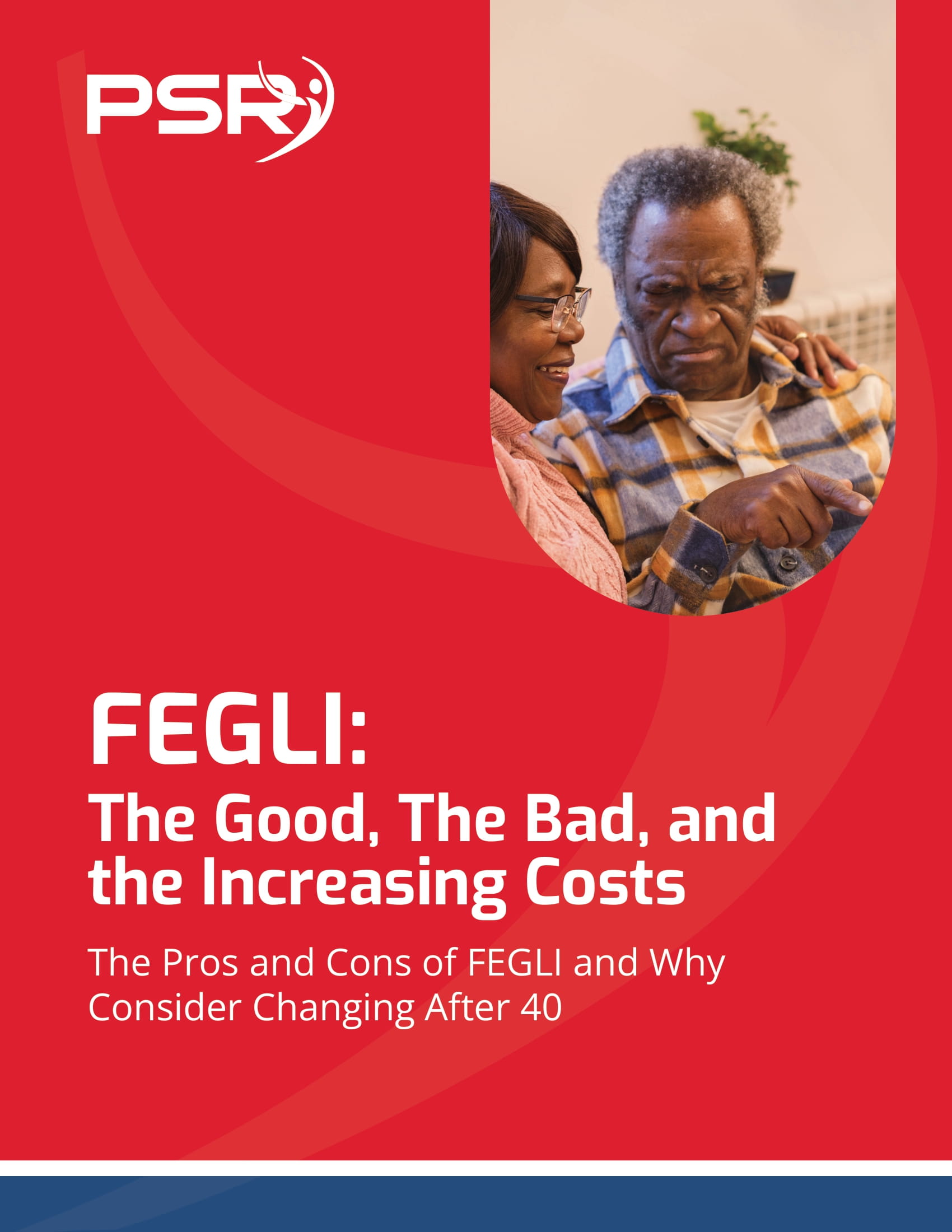Key Takeaways:
- Deciding on early retirement as a federal employee requires a thorough evaluation of financial readiness, health, and lifestyle considerations.
- Understanding the impact on federal benefits and pensions is crucial for making an informed decision.
Making the Hard Decision: Should Federal Employees Consider Early Retirement?
Early retirement can be an appealing option for federal employees who have dedicated years to public service. However, this significant decision involves various factors that need careful consideration. Assessing financial readiness, health, lifestyle, and the impact on benefits and pensions is crucial for making an informed choice. This article explores these aspects to help federal employees decide whether early retirement is the right path for them.
Evaluating Financial Readiness for Early Retirement
- Also Read: Divorce and Your Federal Pension—What Happens When You Split Assets and How It Could Affect Your TSP
- Also Read: What Happens to Your Federal Benefits After Divorce? Here’s the Lowdown
- Also Read: The Best FEHB Plans for 2025: Which One Fits Your Lifestyle and Budget the Best?
Financial readiness is perhaps the most critical factor in deciding whether to take early retirement. Federal employees must consider their savings, investments, and expected retirement income to ensure they can maintain their desired standard of living without regular employment income.
Assessing Retirement Savings
Retirement savings, including contributions to the Thrift Savings Plan (TSP), personal savings, and other investment accounts, play a significant role in determining financial readiness. Employees should evaluate their current savings and project whether these funds will be sufficient to cover their retirement expenses.
- TSP Savings: Assess the balance of your TSP account and consider how much you will need to withdraw annually. The TSP offers various withdrawal options, including monthly payments, life annuities, and lump-sum withdrawals.
- Other Investments: Consider other investment accounts, such as IRAs, 401(k)s, or taxable investment accounts. Ensure that these investments are diversified and aligned with your retirement goals.
Calculating Retirement Income
In addition to savings, federal employees need to estimate their retirement income from various sources:
- FERS/CSRS Pension: Calculate your expected pension benefits under the Federal Employees Retirement System (FERS) or Civil Service Retirement System (CSRS). Early retirement can reduce the pension amount, so understanding the financial impact is crucial.
- Social Security Benefits: Consider the timing of Social Security benefits. While you can start receiving benefits as early as age 62, delaying benefits increases the monthly payment.
- Part-Time Work: Some retirees choose to work part-time to supplement their income. Evaluate whether part-time work is feasible and how it fits into your retirement plans.
Budgeting for Retirement
Creating a detailed retirement budget helps in understanding your financial needs. Include essential expenses such as housing, healthcare, food, transportation, and discretionary spending like travel and hobbies. Ensure that your projected income and savings can cover these expenses comfortably.
Assessing Health and Lifestyle Considerations
Health and lifestyle factors significantly influence the decision to retire early. Federal employees must consider their physical and mental well-being, as well as their desired lifestyle in retirement.
Health Status
Good health is essential for enjoying retirement. Consider the following health-related factors:
- Current Health: Evaluate your current health status and any chronic conditions that may affect your ability to enjoy retirement.
- Healthcare Costs: Healthcare expenses can be substantial in retirement. Federal employees have access to the Federal Employees Health Benefits (FEHB) program, which they can continue into retirement. Assess the costs and coverage options available under FEHB.
- Long-Term Care: Plan for potential long-term care needs. Long-term care insurance can help cover costs associated with assisted living or nursing home care.
Lifestyle Goals
Retirement offers the freedom to pursue personal interests and hobbies. Consider how you want to spend your time and whether early retirement supports your lifestyle goals:
- Travel and Leisure: If you plan to travel extensively or engage in leisure activities, ensure you have the financial resources to support these goals.
- Family and Social Connections: Consider how early retirement will impact your relationships with family and friends. Being retired while your peers are still working may affect your social interactions.
- Volunteer and Part-Time Work: Many retirees find fulfillment in volunteer work or part-time employment. Evaluate opportunities for staying engaged and active in your community.
Understanding the Impact on Federal Benefits and Pensions
Federal benefits and pensions are integral to retirement planning. Understanding how early retirement affects these benefits is crucial for making an informed decision.
FERS and CSRS Pension Impact
The FERS and CSRS pension systems provide federal employees with a steady income in retirement. However, retiring early can reduce the pension amount:
- FERS: Under FERS, employees who retire before reaching their Minimum Retirement Age (MRA) with at least 10 years of service but less than 30 years will receive a reduced pension. The reduction is 5% for each year under age 62.
- CSRS: For CSRS employees, the reduction depends on the number of years of service. Early retirement before age 55 results in a reduction of 2% per year for each year under age 55.
Thrift Savings Plan (TSP)
The TSP is a critical component of federal retirement benefits. Understanding how early retirement affects TSP withdrawals and required minimum distributions (RMDs) is essential:
- Early Withdrawals: Withdrawing from the TSP before age 59½ may incur a 10% early withdrawal penalty, in addition to regular income taxes. However, there are exceptions for federal employees who retire after age 55.
- RMDs: Starting at age 73 (for those born between 1951 and 1959; age 75 for those born in 1960 or later), retirees must take RMDs from their TSP accounts. Plan your withdrawals to minimize tax liabilities and ensure a steady income.
Health Insurance and Other Benefits
Federal employees can continue their FEHB coverage into retirement, but there are considerations:
- Premiums: Retirees pay the same premiums as active employees, but they must ensure they have enough income to cover these costs.
- Medicare Integration: At age 65, federal retirees become eligible for Medicare. Understanding how FEHB and Medicare work together is crucial for managing healthcare costs.
- Life Insurance: Federal Employees’ Group Life Insurance (FEGLI) can be carried into retirement, but coverage and premiums change. Evaluate your life insurance needs and consider alternative options if necessary.
Conclusion: Making an Informed Decision
Deciding whether to take early retirement as a federal employee involves a comprehensive evaluation of financial readiness, health, lifestyle goals, and the impact on federal benefits and pensions. By carefully considering these factors and seeking advice from financial and legal professionals, federal employees can make a well-informed decision that aligns with their long-term goals and ensures a secure and fulfilling retirement.
Contact Information:
Email: [email protected]
Phone: 3234811328
Bio:
For over 13 years, Jason Anderson has served as a Personal Financial Advisor, Estate and Retirement Planner, helping to educate individuals from all walks of life and income levels on wise money investment and planning for a comfortable lifestyle and retirement.
Over time, Jason Anderson has become the ‘Go-To’ leading authority on personal financial advising, financial planning, and analysis, as well as retirement planning and financial planning for SMALL BUSINESS OWNERS. He also provides HIGHLY Popular financial education seminars for groups. These financial seminars empower people to more effectively budget, plan, manage their money, and achieve their personal financial goals. As a result of the excellent results, praise, and feedback that their financial seminars have received, the City of Los Angeles, The AFL-CIO union groups, as well as several other organizations, have decided to partner with Jason to more effectively accomplish their mission. He was also honored to be showcased in the November 2014 issue of Forbes Magazine “Americas Financial Leaders” and has been dubbed by the media as ‘The Financial Educator.’
Jason is passionate about the work he does because it brings him joy to help his financial planning and advising clients reach their financial goals. He finds excitement in assisting families in saving and paying for their children’s college education without stress, thanks to the financial plans he designs for them. He also takes pride in witnessing clients reach retirement and enjoy it precisely the way they desire.
Personally, Jason finds joy in being a husband and father of two wonderful children. In his spare time, he enjoys traveling, sports, hiking, and reading.
He works with Employees, Business Professionals, Business Owners, and ‘High Net Worth’ People.
► Like to discuss your personal financial situation?
☏ Call Jason at (323) 481-1328 for a FREE Consultation
✉ Email him at [email protected]
Disclosure:
All annuity and life insurance products are designed to supplement securities as part of an overall plan. The recommendation of annuities and life insurance is not designed to eliminate the need for securities in any way.













